Zakat al-mal
What is Zakat?
Zakat or almsgiving, is one of the five pillars of Islam. Zakat is charged at a rate of 2.5%. This means you should donate 2.5% of your wealth over a certain amount – known as the Nisab. Zakat is paid once a year. A Muslim’s wealth must exceed the Nisab threshold for one full Islamic year, or ‘Hawl’, which is the term for a lunar year, which lasts for 354 days.
What is Nisab?
The Nisab is the minimum amount of wealth a Muslim must own before they become eligible to pay Zakat. This amount is often referred to as the Nisab threshold. this threshold is determined by two nisab values, which are:
- Gold – the monetary value of 87.48 grams of gold
- Silver – the monetary value of 612.36 grams of silver
As the valuation of gold and silver fluctuates so does the Nisab threshold.
What is included in my Zakat contribution?
Zakat is calculated on your wealth, including personal assets and cash.
The assets that are eligible to be considered for Zakat are:
- Cash at home, in a bank or savings accounts
- Funds saved for a special occasion or reason (such as hajj, a deposit on a property or a wedding etc…)
- The value of any gold and silver in your possession
- Investments and any stocks and shares that you own
- The value of any secondary homes/vehicles
When Should I Pay Zakat?
Zakat can be calculated and paid any time during the year if your wealth has exceeded the Nisab threshold for a lunar year. Although muslims often pay their zakat in the month of ramadan as it is believed during this time yields extra rewards and blessings.
Zakat al-mal should not be confused with Zakat al Fitr, or Fitrana, which is a duty on every person and which must be paid during the month of Ramadan before the Eid prayers.
Who is Eligible to receive Zakat?
Allah SWT has mentioned those who are eligible for Zakat in the Holy Quran.
اِنَّمَا الصَّدَقٰتُ لِلۡفُقَرَآءِ وَالۡمَسٰكِيۡنِ وَالۡعٰمِلِيۡنَ عَلَيۡهَا وَالۡمُؤَلَّـفَةِ قُلُوۡبُهُمۡ وَفِى الرِّقَابِ وَالۡغٰرِمِيۡنَ وَفِىۡ سَبِيۡلِ اللّٰهِ وَابۡنِ السَّبِيۡلِؕ فَرِيۡضَةً مِّنَ اللّٰهِؕ وَاللّٰهُ عَلِيۡمٌ حَكِيۡمٌ
“Alms-tax is only for the poor and the needy, for those employed to administer it, for those whose hearts are attracted to the faith , for freeing slaves, for those in debt, for Allah’s cause, and for needy travellers. This is an obligation from Allah. And Allah is All-Knowing, All-Wise. ” Quran (9:60)
The eight categories for being eligible to receive Zakat, are:
- Those living in poverty and with little to no income – Fuqara
- People who do not have access to basic needs and amenities – Al-Masakin
- Individuals or organisations employed to distribute Zakat – Amil
- Those who are new to Islam and friends of the Islamic community – Muallaf
- Anyone held involuntarily against their will in captivity or as a slave – Riqab
- People who are in debt beyond their means – Gharmin
- Individuals who work for Allah’s cause – Fisabilillah
- People who are travelling and require help or assistance – Ibnus Sabil
Help improve lives with your Zakat donation
We take the responsibility of handling Zakat seriously. By making your Zakat payment to us, you can be sure your payment will help those suffering from poverty or extreme hardship. We support people to come out of poverty by working on access to food, clean water, education & healthcare. Your donation can help change lives now and forever.
Please Donate your Zakat Al-Mal
وَأَقِيمُوا۟ ٱلصَّلَوٰةَ وَءَاتُوا۟ ٱلزَّكَوٰةَ وَأَطِيعُوا۟ .ٱلرَّسُولَ لَعَلَّكُمْ تُرْحَمُونَ
And establish the prayer and give zakah and obey the Messenger, so that you may receive mercy
[Surah An-Nur 24:56]
Zakat al Fitr, or Fitrana, is a duty on every Muslim to pay for himself and those who he has a duty towards. It must be paid during the month of Ramadan before the Eid prayers.
Every Muslim who has more than enough food for the day and night of Eid must pay Zakat Al-Fitr.
Yes, Zakat is paid on gold and silver jewellery, whether this is worn or kept in a safe as an investment. If the nisab threshold is met, Zakat must be paid on any gold or silver you own.
Zakat is one of the five pillars of Islam and is obligatory 2.5% of one’s wealth. Sadaqah is a voluntary act which does not have a minimum amount. Paying Sadaqah cannot replace Zakat, nor vice versa. Both are separate acts of charity in Islam.
Al-Qiyas Welfare do not have any Zakat administrators who collect and distribute Zakat on behalf of us.
